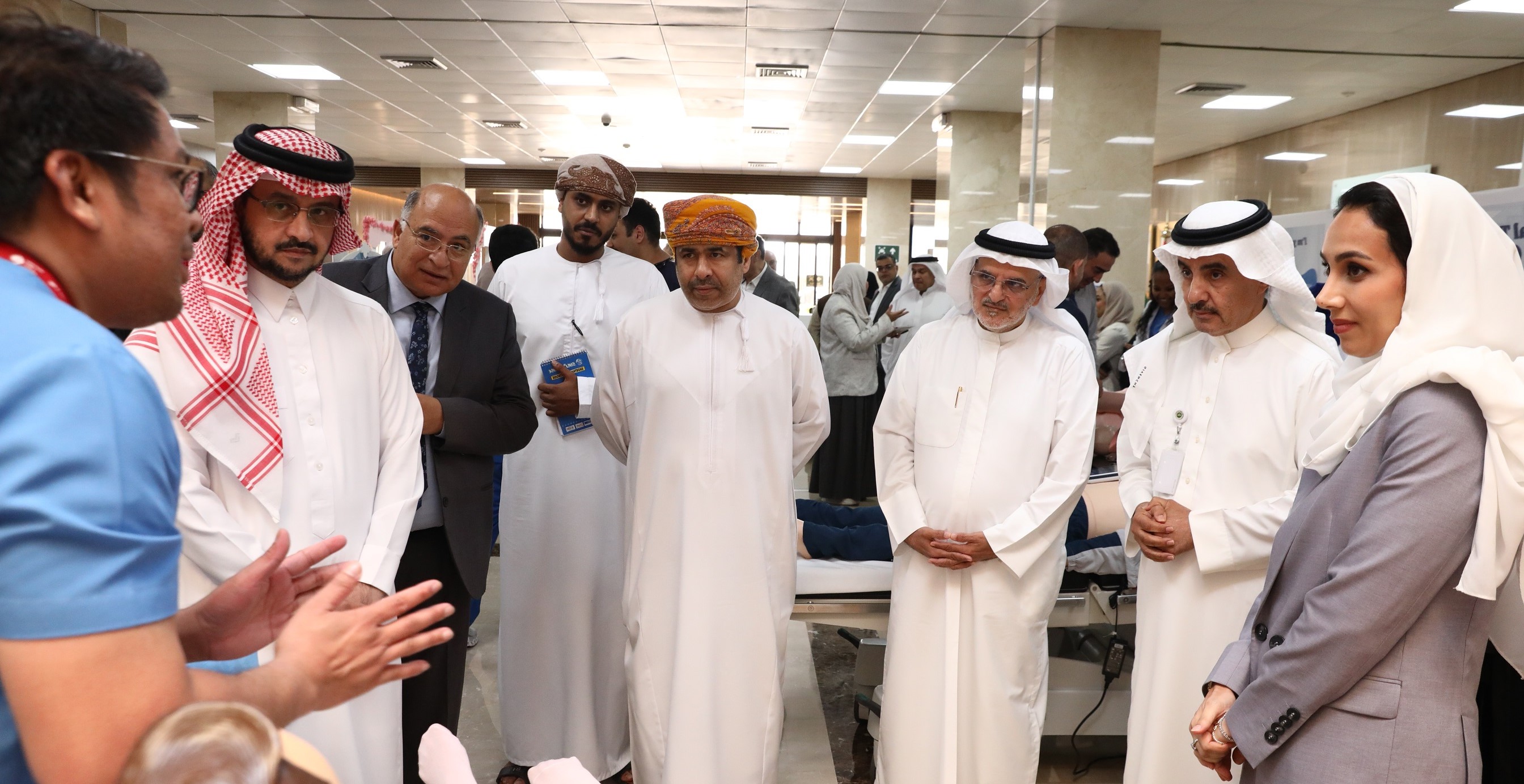
AGU Hosts Medical Simulation Day in Celebration of Healthcare Simulation Week
Arabian Gulf University
17 Sep, 2025
The Medical Skills and Simulation Centre at Arabian Gulf University (AGU) organised its Medical Simulation Day exhibition in conjunction with Healthcare Simulation Week, which is annually celebrated in September. This year's theme "United Through Simulation" draws awareness to the vital role of simulation in enhancing healthcare safety and efficiency through innovative education and training methods.
Academic staff, medical and nursing students, and healthcare professionals engaged with interactive booths displaying the latest simulation devices, medical education techniques, and live demonstrations of realistic clinical scenarios within a safe environment. Participants explored advanced simulation equipment, information systems, and the educational theories underpinning simulation-based learning, aimed at refining their clinical skills and supporting sound decision-making in various medical situations.
Dr Ghazi bin Abdulrahman Al Otaibi, Vice President for Academic Affairs and Scientific Research, highlighted the significance of the event, stating, "Medical simulation is a nascent and continually evolving science that leverages technology and simulation devices, such as mannequins, to enhance the competence of students and healthcare workers in performing complex procedures. These mannequins replicate human interventions without risking patient safety, allowing learners to practice and perfect their skills through repeated trials. This risk-free environment is a cornerstone of effective medical education."
Dr Reem Al Ansari, Head of the Medical Skills and Simulation Centre, explained that Healthcare Simulation Week is an international initiative to raise awareness regarding the growing role of simulation in improving healthcare quality and provider performance through continuous, realistic training. She noted that the event featured extensive student participation in simulations covering various medical scenarios, including emergency situations, cardiopulmonary resuscitation, and the usage of high-resolution models. The event also stressed the importance of effective communication among medical teams and students outside traditional lecture settings.
The exhibition underscored the critical role of medical simulation as a multifunctional tool for enhancing healthcare quality and safety, reducing medical errors, and integrating advanced technology into medical education. It also acknowledged the collaborative efforts of biomedical engineers, nurses, educators, coordinators, and support staff, highlighting teamwork as the key to excellence at the Simulation Centre.
Medical Simulation Day included three interactive training workshops: “Simulation Escape Room” a fun and interactive experience for medical students; an interdisciplinary educational workshop featuring collaborative problem-solving on simulated medical cases, marking the first such joint activity for medical and nursing students in Bahrain; and “Professionalism and Communication” targeting non-medical staff such as administrative, HR, and finance personnel, demonstrating how simulation enhances teamwork and communication skills.
These workshops utilised virtual reality and smart models to provide practical scenarios, share the best practices, and foster innovation in healthcare delivery and collaboration. The initiatives aimed to expand participants' understanding of healthcare processes and improve their skills through immersive, technology-driven experiences.
